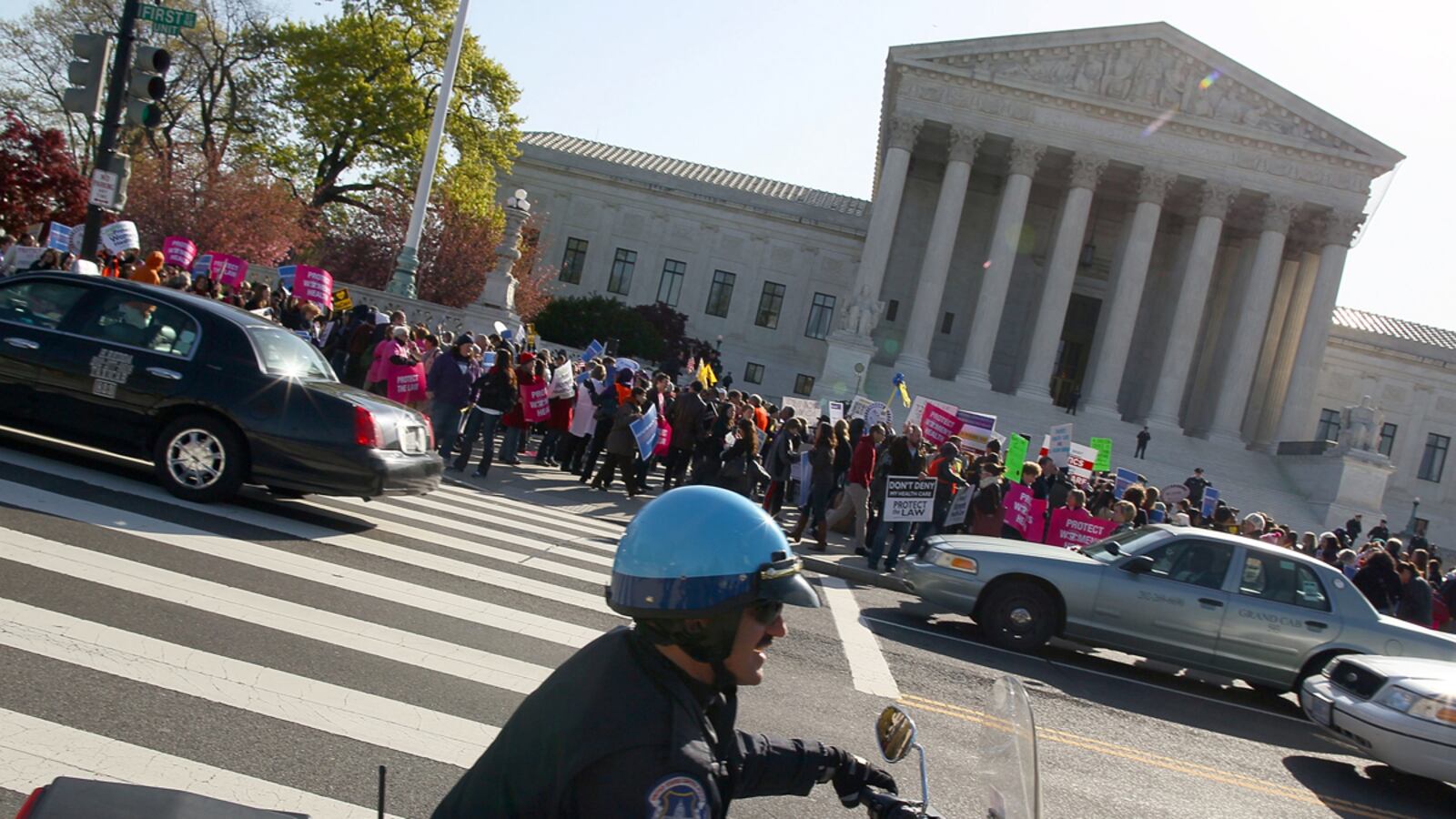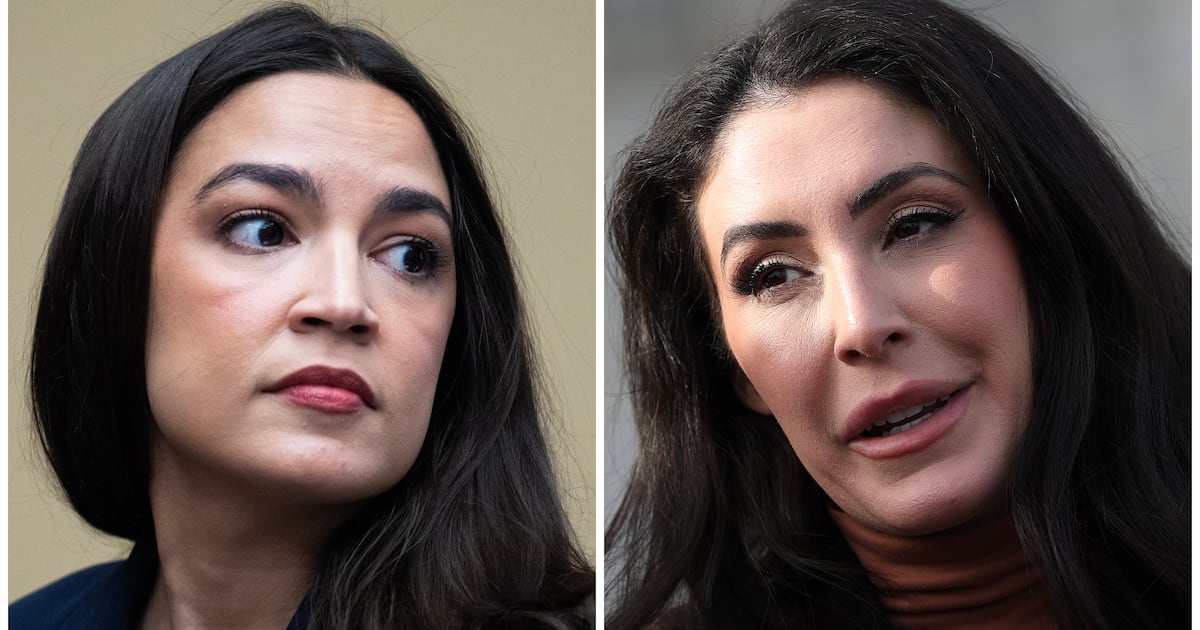You know the definition of a federal judge? It's someone who went to law school with his or her senator.
Yes, many judges are very smart people, but they don’t get appointed to the federal bench because they have the greatest legal minds. They get to be judges because they are competent and well connected.
So the New York Times–CBS News poll released Friday—finding that three out of four Americans believe Supreme Court justices have their decisions influenced by their personal and political beliefs—should come as no surprise. Of course justices are political animals! That’s how they get to be justices in the first place.
This has been true for more than 200 years, but clearly something new has happened. A generation ago, two thirds of Americans approved of the way the court was doing its job. Today, according to the Times poll, the figure is 44 percent. A 23-point drop in an approval rating over 25 years doesn't just happen spontaneously—something causes it.
Two connected factors help explain the court's precipitous plunge.
The first is that this is the most entrenched court in American history. The average tenure of the five most senior Justices—Scalia, Kennedy, Thomas, Ginsburg and Breyer—is more than 21 years. This is the highest number ever recorded. Put another way, these five justices have served on average longer than five presidential terms.
This is important because justices, like all human beings, are products of their generation. It's one thing for a Justice's personal views to influence his or her decisions, but we have a court dominated by life-tenured justices whose views were shaped during a time when nearly a quarter of our population was not yet born.
The generation gap becomes clearer every day. For example, there is great anticipation as to whether the Supreme Court will weigh in on the question of gay marriage. But for most of the youngest quarter of Americans, this is not an issue at all. It is as obvious to today’s young Americans that gays should have the right to marry as it was to young Americans in 1960 that blacks and whites should be treated equally.

Which brings us to the second factor responsible for the court's loss of prestige. Over the past decade, the court has stopped doing its job, and the people have noticed.
There has always been a debate over the appropriateness of judicial review. In a democracy, how can we justify a decision by a group of unelected judges to strike down a law supported by the majority?
Implicit in this question is that the most troubling thing about judicial review is that judges are interfering with the will of the people. But what has happened over the past decade is that rather than protecting the minority, the Supreme Court instead safeguards the interests of the rich and powerful.
In the course of American history, the most infamous Supreme Court decisions have been those where the justices have sided with the economically and politically powerful to squash the hopes and aspirations of the comparatively weak. In the 19th century, for example, the court upheld racial segregation, denied blacks the right even to invoke the judicial process, and permitted states to prevent women from practicing law. In the twentieth century, it nullified efforts to protect the economically vulnerable and upheld internment of the Japanese during World War II. Each of these decisions now stands as embarrassment.
Beginning in the middle of the last century, however, the court began to safeguard the rights of the least powerful. In this sense, unlike the current court, the Justices were protecting the rights and interests of citizens who were not from their same economic or social class. A court with no black members struck down the doctrine of separate but equal. A court with no women nullified anti-abortion laws that had been enacted almost entirely by men. A court of people who had never been arrested moved to protect rights of the criminally accused. Many of these decisions were and remain controversial, but what they all had in common was that the court took action for the sake of protecting the weak.
Over the past decade, this orientation has been stood on its head, and the court has taken to safeguarding the interests of its own social class. The court has backtracked on abortion, saying it needs to protect women from themselves. It has prevented states from rectifying the injuries caused by centuries of racial discrimination. It has shielded pharmaceutical companies from having to pay damages to people who have been grievously injured by their products. And it has helped destroy the political process by making it possible for corporations and wealthy Americans to talk so loudly that they drown out everyone else.
The health-care law provides the perfect illustration of this turnaround. According to recent polls, more than half of all Americans support complete or partial repeal of the mandated care act. If those polls are accurate, then there is no need for the Supreme Court to strike down the law. Come November, those people who want it repealed can do what they’ve always had the right to do—go to the polls and choose elected officials who share their views.
As for the court, proposals for reform go back well beyond FDR’s failed effort to pack the court in the 1930s. Ideas have included increasing the number of justices, so that young Americans have some representation; establishing term limits for justices; restricting the types of cases the Supreme Court can review; and even (heaven forbid) impeachment.
Justices have always had their decisions influenced by their beliefs and politics. But when most everyone shares the same cluster of political beliefs, that fact is invisible. Friday’s poll doesn’t reveal the existence of a new phenomenon, but the fact that people are now noticing an old phenomenon. And what this in turn reveals is simply that the justices are out of touch.





